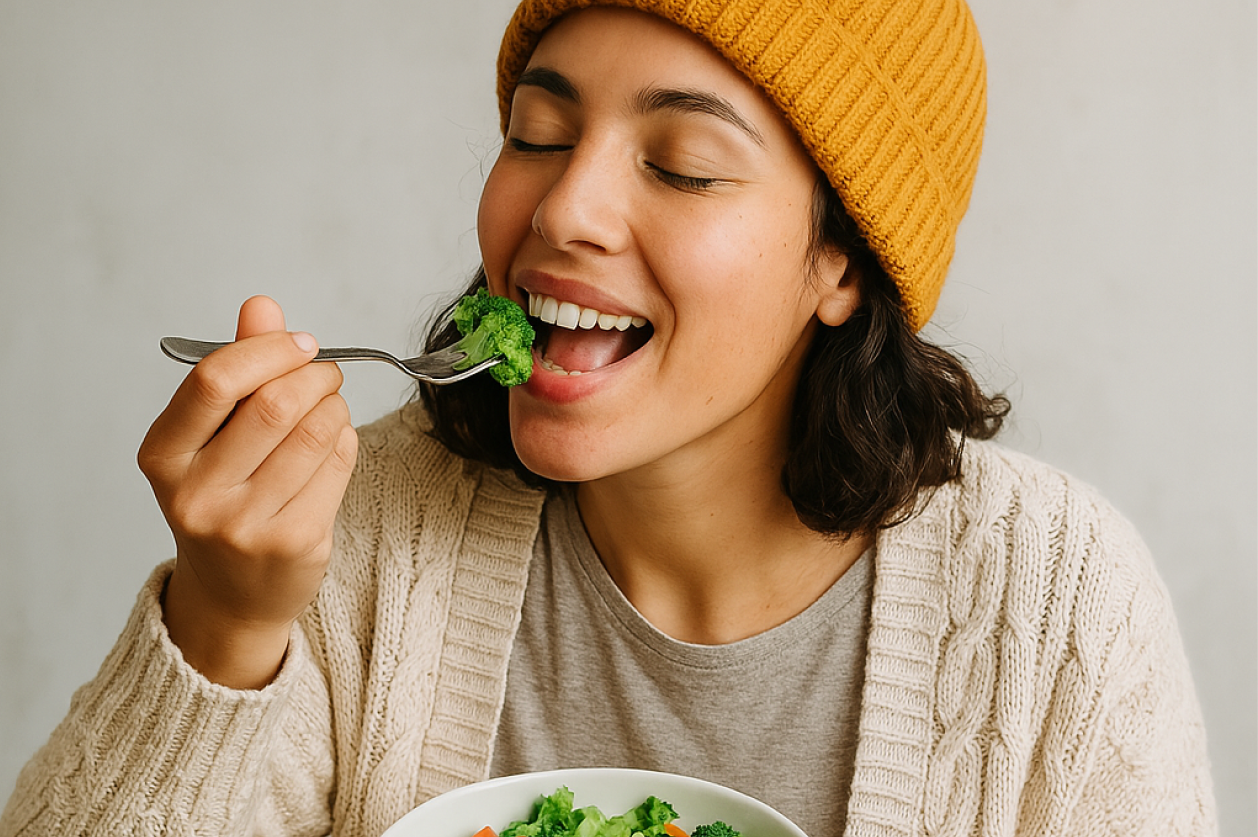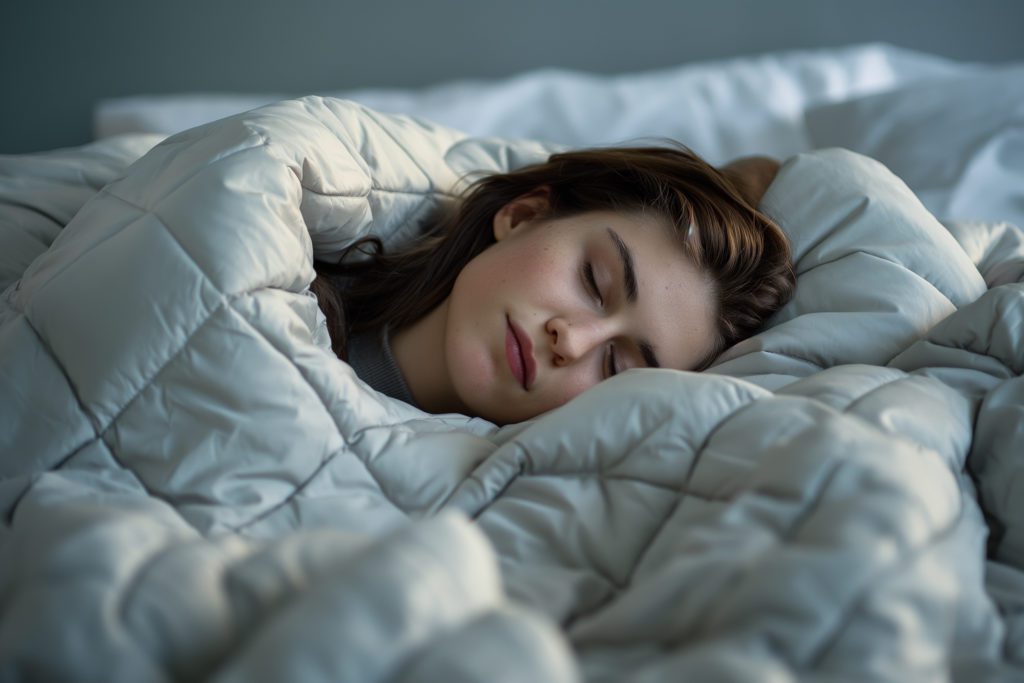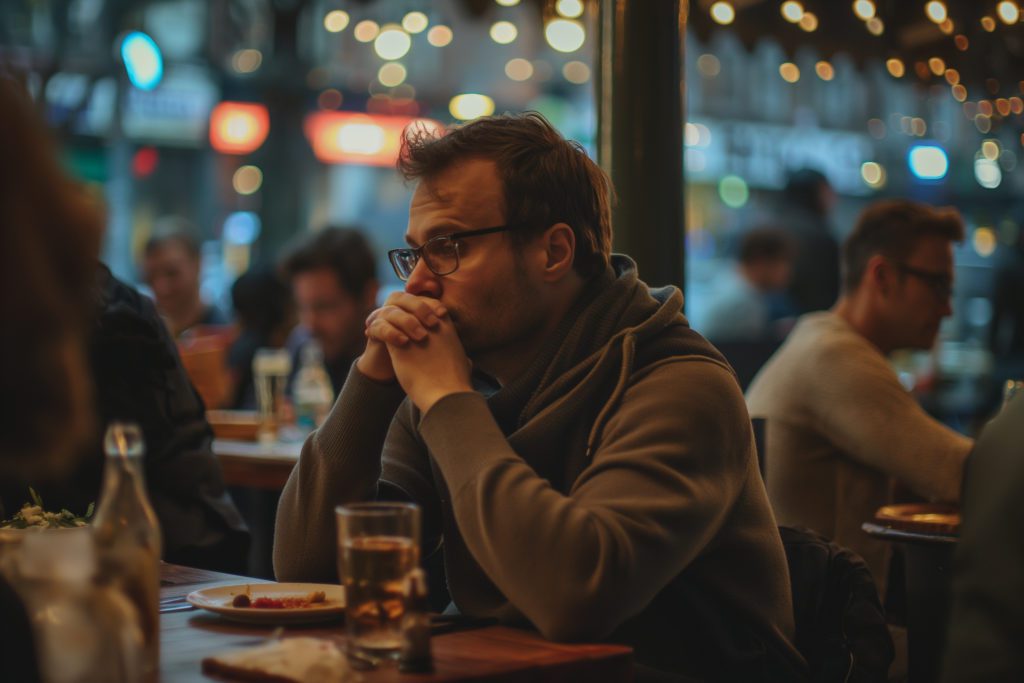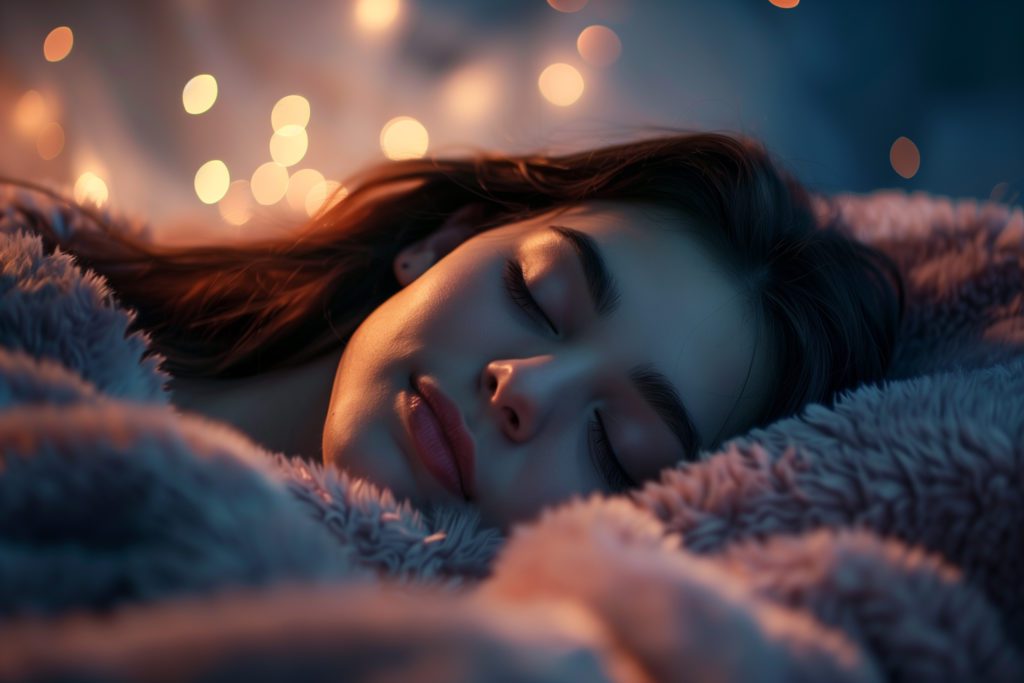
Did you know that diet and sleep are connected to anxiety? Learn how to reduce anxiety by eating well and prioritizing your nightly rest

You’ve likely heard of the age-old saying, “You are what you eat,” but did you know it goes much further than that? Your diet is tied a great deal to your sleep, as how you eat indicates your sleep quality. Not only that but what you eat can also indicate your mental state. Our sleep and diet can suggest whether or not we have anxiety, as surprising as it sounds. If you’re curious about this connection, read on, as that’s precisely what we will explore.
In this article, we’ll assess the role of diet in anxiety and the connection between sleep and anxiety. We’ll also examine how diet and sleep can reduce anxiety and why this is so important. If you want to reduce your anxiety, this article is a must-read. Before we uncover how to alleviate anxiety, let’s understand how diet can cause anxiety.
The Role of Diet in Anxiety
The role of nutrition in our mental health is quite often overlooked, but it is so vital for us to understand. Many studies have examined what constitutes a “healthy” diet and whether this sort of eating pattern can support healthy mental states. Most studies have confirmed that eating a diet that is full of fruits, vegetables, omega-3 fatty acids, probiotics, and other nutrients leads to less anxiety (Source: MDPI).
Interestingly enough, the same study showed that if you eat high amounts of fat, processed foods, sugar, refined carbohydrates, and little protein, you will feel more anxious. For men specifically, they may be more at risk of mental health conditions, as one research study showed that men ate more saturated fats and struggled with higher rates of depression and anxiety. So, it is clear that eating enough nutrients and ensuring that you have a balanced diet is the key to ensuring you avoid anxiety. Yet, we can’t forget that anxiety can also have an effect on our diets, too.
Many researchers agree and have proven that anxiety can curb our appetite, leading to challenges in getting these essential nutrients that we need to feel mentally well. That might be why, the day before a big exam or presentation at work, you feel like you can’t eat and you’re anxious. With up to 20% of people suffering from anxiety disorders throughout their lifetime at one point or another, we all can take steps to make sure that we continue to practice healthy eating habits even amidst our anxiety. However, we have to also look at how anxiety and sleep are connected.
The Sleep-Anxiety Connection
Now that you understand how the food on your plate influences anxiety, you might also be interested in the sleep-anxiety connection. This relationship is as intertwined as that of diet and anxiety, showing—once again—that our health is dependent on our quality of rest, among other factors.
In China, a study was conducted on high school students to discover if sleep disturbances and mental health were associated. They confirmed that those who had sleep disturbances regularly also had poorer mental health. This also leads to more prevalent comorbidities amongst these teens.
This study is fascinating because it highlights how vital sleep is. But what stage of sleep is among the most important for reducing anxiety? According to an article in Sleep Medicine Reviews, slow-wave sleep might be the key to reducing anxiety. This is because this is when the brain rests and recovers, allowing the body to follow suit.
Yet, just like anxiety and diet, this relationship goes both ways: if you are anxious, you’ll also struggle with sleep, leading to worse outcomes and even more symptoms of anxiety. This is true for those with PTSD or any other related disorders. So, if you want to encourage better sleep, then you have to find ways to relax, get enough sleep, and prioritize your health. Let’s explore some tips that we found that can help reduce anxiety through both diet and sleep.
How to Reduce Anxiety Through Diet and Sleep
With an understanding of anxiety and its remarkable relationship with diet and sleep, you might have some ideas about how to reduce this mental disorder. Based on the research presented, as well as other literature from the field, here are the best techniques for reducing anxiety through diet and sleep:
- Eat a Balanced Diet: As we discussed up above, the first and most important tip that we can provide is to eat a balanced diet. This means eating enough protein, fruits, and vegetables and getting quality fat sources every single day. If your plate is not balanced, then your mental health may not be as optimal as it could be!
- Avoid Processed Foods: This should go without saying, but for your own health, eating processed foods can lead to anxiety, as explored before. So, if you want to limit your chances of feeling anxious, prioritize whole foods on your plate and think twice about the soda or junk food that tempts you at the store.
- Prioritize Your Rest: Late nights scrolling on your phone or watching TV might sound like fun, but it can really hurt your mental health. Make sure that you create a healthy bedtime routine so you can experience better sleep quality and improved daytime functioning, all of which will limit your anxiety and stress (Source: Journal of Mood & Anxiety Disorders).
With these three tips, you can take steps to promote better health, energy, and, ultimately, less anxiety in your life. All it takes is leading a healthy lifestyle, and you’ll begin to notice a difference!
How Will You Limit Anxiety in Your Life?
Limiting the anxiety in your life is not just about avoiding or reducing your interactions with triggers but also about what you eat and how you sleep. If you are not getting adequate rest and you’re eating poorly, you will struggle with anxiety. However, if you incorporate the tips we have presented, you’ll be well on your way to living a better, less anxious life. For more tips on how to improve your sleep for optimal health, visit our website today to read more articles.
FAQ
Why does caffeine make me anxious?
Caffeine stimulates the central nervous system by blocking adenosine, a chemical that promotes relaxation. This leads to increased alertness, but also triggers a rise in cortisol and adrenaline—stress hormones that can make you feel jittery, restless, or anxious, especially in high doses.
How does alcohol affect anxiety and sleep?
Alcohol might help you feel relaxed or sleepy at first, but it disrupts your sleep cycles, especially REM, and often leads to waking up throughout the night. The next day, you may feel more anxious due to chemical imbalances, dehydration, and a “hangxiety” effect that causes overthinking, regret, or mood swings.
Does intermittent fasting influence anxiety or sleep quality?
It can. Some people feel great on intermittent fasting, but others may experience higher stress and trouble sleeping, especially if they skip dinner or eat too little. Low blood sugar at night can cause wake-ups and even anxious feelings.
Can food intolerances or sensitivities cause anxiety or poor sleep?
Yes, if your body reacts badly to certain foods, it can cause inflammation and digestive issues. This can mess with your gut-brain connection and lead to anxiety or trouble sleeping, especially if symptoms flare up at night.
How does dehydration impact anxiety and sleep?
Even being a little dehydrated can make you feel tired, irritable, or unfocused. It can also increase your stress hormones, making it harder to relax. If you're not drinking enough water during the day, you might find it harder to fall asleep or stay asleep.
Are there any teas or herbal supplements that can help manage anxiety?
Yes, certain teas and herbal supplements can naturally support anxiety relief. Chamomile tea is widely used for its soothing properties and ability to calm the nervous system. Supplements like ashwagandha, valerian root, and lavender may help lower stress hormones, ease tension, and improve mood. For best results, they should be used regularly and alongside healthy sleep and stress-management habits.

Written by
Marie Soukup
Marie Soukup is a seasoned copywriter, editor, and Integrative Nutrition Health Coach with a certificate from the Institute of Integrative Nutrition (IIN). With years of experience working with brands across diverse industries, Marie is passionate about holistic health and crafting compelling content.
Download Pillow
Get help
Press & News
Legal
Connect
X (Twitter)
Company
Copyright © Neybox Digital Ltd.



